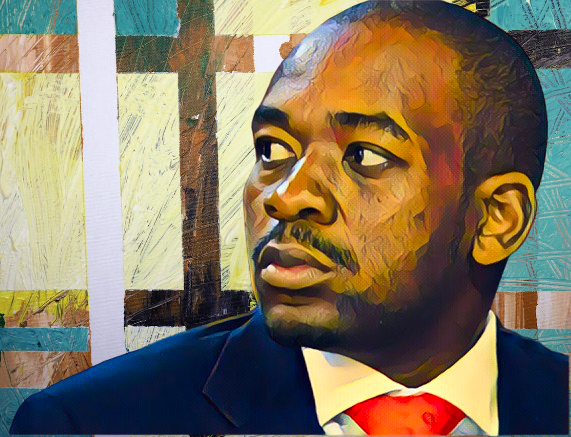Opposition politician Nelson Chamisa has discouraged his supporters from resorting to violence to compel the ruling Zanu PF party to address the disputed August 2023 elections. Chamisa, who refuses to recognize President Emmerson Mnangagwa as Zimbabwe’s legitimate leader due to alleged electoral fraud, has been under intense pressure from his supporters to address the political stalemate urgently.
Chamisa, founder of the Citizens Coalition for Change (CCC), resigned from the party citing infiltration by Zanu PF. Despite his resignation, he assured his followers that he would remain active in politics. His next move remains unclear, with speculation that he might form a new political party.
In his first public statement since his resignation, exclusively shared with NewsDay, Chamisa emphasized the importance of peaceful solutions to the electoral dispute, describing Zimbabwe as “too beautiful and precious” to be destroyed by violence.
“Fellow citizens, may I hasten to say, following statutory procedures and peaceful means to resolve your issues is not a manifestation of weakness or that we are devoid of other ideas and means,” Chamisa stated. “It is our strict commitment to finding each other and amicably resolving our points of conflict, disjuncture, and disagreement. We have committed to a peaceful resolution of disputes and intend to exhaust all available peaceful remedies.”
He added, “Zimbabwe is too beautiful and precious to be destroyed by flames of political disputes under our watch. Peace is fragile. Peace is sacrosanct. And the breakdown of peace knows no winner.”
Chamisa has been advocating for dialogue with Mnangagwa, who has so far rejected his calls, choosing instead to engage with Chamisa’s political rivals. Chamisa reiterated the need to resolve the electoral dispute before the next elections in 2028.
“Our beautiful country can never progress on the back of disunity and successive disputed national processes including contested elections,” Chamisa said. “We are acutely aware of the urgency of this matter and more importantly that there can never be any talk of 2028 or a viable and stable future for this country without resolving August 2023, the broken past, and disputed politics.”
He urged his supporters to remain vigilant and committed to peaceful efforts. Chamisa is hopeful that the Southern African Development Community (SADC) will intervene to resolve the crisis, following the regional body’s criticism of the August 2023 elections. However, some critics doubt SADC’s willingness to intervene, arguing that the responsibility lies with Zimbabweans to resolve their issues.
In his statement, Chamisa noted his ongoing communication with SADC regarding the electoral dispute. “We have noted the various meetings the leadership of SADC has held, including the latest Extraordinary Summit of the Organ Troika on the 23rd of March 2024 in Lusaka, Zambia. Therefore, we have advisedly been patiently waiting on our request,” he said.
“On the 29th of April, however, since considerable time has passed, yet we had sought to resolve this issue much earlier, we delivered our follow-up to SADC for which we await a response to determine a clear path forward to resolve the governance crisis. Our request to SADC was and remains very simple, that, as the regional body which Zimbabwe has signed up for membership and vested some authority in the supranational interstate organisation, we require their facilitation to peacefully resolve the issues around the irregular and disputed elections.”
Political commentator and Southern Africa program head for the Institute for Security Studies, Piers Pigou, expressed skepticism regarding Zanu PF’s willingness to engage in dialogue. He noted that Mnangagwa and his party do not feel compelled to negotiate, having declared victory in the disputed elections and rejecting key reform proposals.
“I don’t think he [Mnangagwa] would settle for dialogue. There is no political need to make this move (dialogue), as far as Zanu PF is concerned, they have won the elections and they don’t agree with key aspects of reforms,” Pigou stated. “There is a lot of positive thinking that exists within the ruling party but the individuals do not have the power to ensure that a policy commitment is made, or that there is accountability. That power lies in an elitist clique within Zanu PF.”
Chamisa’s call for peace and his refusal to resort to violence highlight his commitment to a non-violent resolution of Zimbabwe’s political crisis. As the situation evolves, the nation watches closely, hoping for a peaceful and just resolution.
Source: Newsday


